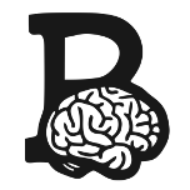
TRANSCRIPT
[00:00:00] So if you are a beginning musician on the banjo or really anything else, or if you’ve just felt frustrated or stuck when learning music at any point in time, I really want you to watch this video. Your success and learning has nothing to do with your age or your talent. And everything to do with how you learn.And in this video, I’m going to talk about what I’ve come to realize is the single most important determinant of your success in learning music. It’s the key difference between those who make consistent steady progress and those who struggle. and even end up giving up. So let’s start with a thought experiment about a guy named Jack.
So, imagine that Jack decides that he wants to learn how to paint like Van Gogh. But he’s never painted before. So, Jack [00:01:00] decides to buy some paint by numbers canvases of ten of Van Gogh’s most famous paintings. So as you probably know, Paint by numbers tells you exactly what paint to apply where, so that you end up with a painting that looks very much like the original.
So Jack again paints 10 different famous van Gogh paintings in this paint by numbers way, and in fact he does each of them multiple times so that he memorizes how to do it. Now, at this point, would you conclude that Jack knows how to paint like Van Gogh? Would you say that Jack has accomplished his goal of learning to paint like Van Gogh?
I don’t think so, right? Jack has learned one very specific thing, which is how to reproduce a set of paintings one way in one single circumstance. And we know that this is nothing like the process that Van Gogh went through in learning how to paint these paintings. Let’s imagine another thought experiment.
[00:02:00] In this one, Jack decides that he wants to learn Spanish. So, he memorizes multiple paragraphs from a book written in Spanish. He doesn’t know what the words mean, but he knows how to say them and can recite them from memory. Would we say that Jack has learned how to speak Spanish? Would we think that he’d be able to carry a conversation with a native speaker?Of course not. And Jack wouldn’t expect this to happen either. Again, by doing this, Jack has learned one very specific thing, which is how to recite these particular paragraphs of Spanish that he’s memorized. And we know that this is nothing like the process that any of us used to learn a language that we speak.
So where does this apply to music? It’s easy to think that being shown exactly how to play something is the way to learn how to play music. That being shown exactly how to play an entire song, whether it’s through notation of some form, including tablature, or simply just being guided through the sequence of [00:03:00] movements that you need to make, that that’s the way to learn to make music.
Yet, that’s not at all how we learn complex skills like painting, or language, or music, as hopefully these examples clearly illustrate. It’s also not how the musicians whose songs we might want to learn how to play, actually learn how to play them. Earl Scruggs didn’t learn how to play Foggy Mountain Breakdown by having someone show him how to play Foggy Mountain Breakdown.
Obviously, right? And learning in this fashion will never lead to developing those skills that we seek. And in some instances, it can actually hinder their development. Every complex ability, whether it’s painting, or communicating through language, or playing music, emerges from the process of acquiring a set of skills.
And the final product, whether it’s a painting, a conversation we have with a friend, or a piece of music that we play on our instrument, is a byproduct of that process. Which is why simply learning how to produce the [00:04:00] finished product doesn’t help us to develop the ability to do these things. It may seem like reverse engineering from a finished product is a way to shortcut the process, but the truth is that it makes it much harder.
And the point is not that you should never do such a thing. Rather, it’s to make sure that how you’re spending your time learning is aligned with your goals, so that you end up building the skills that you actually want to have, and so that you don’t end up wasting your valuable time on things that don’t actually build the skills that you want, and end up frustrated because you don’t know why.
Some people find things like painting by numbers or coloring books to be an enjoyable way to spend some time, and that’s great. There’s definitely room for that sort of thing. But doing so won’t equip you with the kind of skills needed to become an artist. This also does not mean that using notation or tablature can’t be helpful in building the actual skills that you do want.
It all boils down to how you’re using those things, as I’ve talked about before. [00:05:00] Whether or not you’re using them as a learning tool or as a means of creating the conditions that help you discover the things that you need to learn versus simply just using them as a set of instructions for telling you exactly what to do.
And for more on that topic of how to learn from tab in a way that’s aligned with your musical goals, I did a separate Brainjo Bite a while back on how to use tab in a way that supports the development of the skills that you want to learn and that doesn’t undermine those efforts. As you may know, there is a prevailing perception that kids are better at learning things than adults and that their brains are more adaptable and so they can learn complex things like music faster and more effectively, but the research does not show this to be true.
When training conditions are kept the same, adults learn things at the same speed as kids, and in some instances, even faster. But where kids do have an advantage, and why they often learn things like [00:06:00] music faster in real life, is in how they learn. In other words, they tend to learn more effectively or use better practice strategies than adults.
And perhaps the biggest difference is that kids want to explore things for themselves. And adults tend to want to be told what to do. And discovering things for ourselves is the only way we actually learn. A teacher or a system of instruction isn’t there to tell you exactly what to do. All teaching is self teaching.
So a teacher or a system of instruction is there to guide you towards self discovery. It’s to help you create the conditions that will allow your brain to acquire new knowledge and skills. And showing you exactly how to do something does not accomplish that. So it’s not your age or your prior musical experience that will get in the way of your efforts.
Rather, it’s your mindsets and expectations. It’s also important to note that [00:07:00] our expectations also shape what we end up getting. If you go to a teacher and you say, I’ll pay you if you show me exactly how to play Foggy Mountain Breakdown, chances are they’re going to show you exactly how to play Foggy Mountain Breakdown.
So our expectations also influence the kind of instruction we get. And so in many instances, the instruction we get is a response to what we want, not necessarily what we need. And that just ends up perpetuating this cycle in which so many people end up struggling over the long run. Having worked with thousands of people over the years, I can tell pretty quickly the students who are going to do really well.
And again, it has nothing to do with how old they are, whether they’ve played music before, but it has to do with the kinds of questions they ask. Specifically, whether or not they want to be shown exactly how to do things, or whether they want to know the best way to go about learning it. It’s a very crucial difference.
And on that topic, one final thing I’ll say is that if you’re still watching this video, then that’s a very good [00:08:00] sign that you’re going to do well. Because you realize that understanding the learning process is the single most important factor in determining whether you reach your musical goals. If you thought learning to play was just about being shown exactly what to do, you’d have stopped watching this video long ago, and you’d say something like, this is supposed to be a video about learning to play the banjo, and this guy hadn’t even played a single thing.
But understanding these principles are far more important in determining your success than any specific thing I could show you on the banjo. And the fact that you’ve made it here to the end indicates that you realize that, and that you’re focusing your attention on what really matters. So thanks so much for watching or listening, and I will see you in the next Brainjo Bite.


